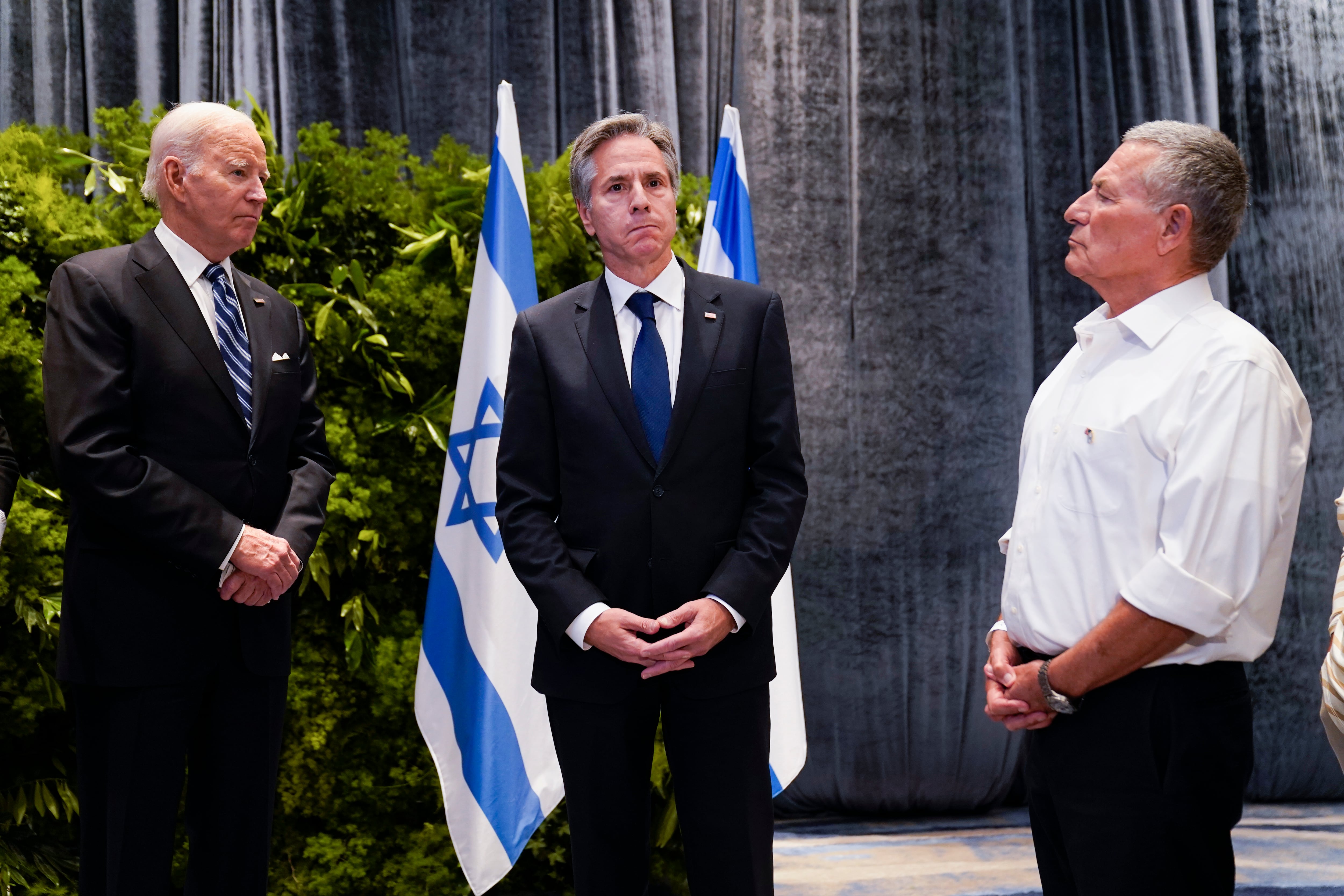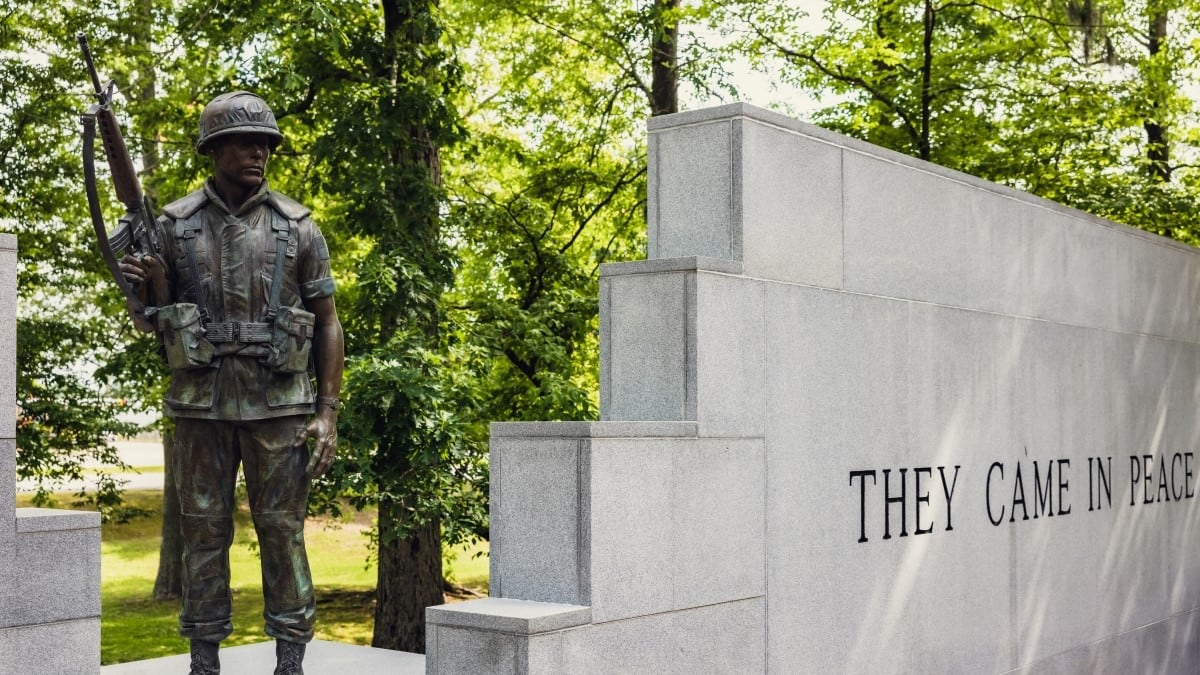At a ceremony Monday in North Carolina to remember the 241 U.S. service members who were killed in a terrorist attack in Lebanon 40 years ago, it didn’t escape anyone’s notice that Marines are back in the Middle East in an effort to tamp down tensions.
Gen. Eric Smith, the Marine commandant, had a blunt message for anyone who would target the Marine expeditionary unit now heading into the region near Israel.
“The secretary of defense has been very clear that, whatever their mission may be, don’t target those Marines — he said it very carefully — because they come ready to respond,” Smith said during his keynote address at the ceremony in Jacksonville, North Carolina.
“I’ll be less diplomatic and more Marine-like,” Smith said, to cheers from the audience, according to a live-streamed video of the event. “For those that are in the area, if that MEU has to go in, if you target them, someone else will raise your children.”
Despite the reference to the current conflict in the Middle East, Smith’s speech was mostly focused on the sacrifices of those who served in Beirut 40 years ago, including those who survived.
Two hundred forty-one American service members — 220 Marines, 18 sailors and three soldiers — on a peacekeeping mission to Beirut were killed in the terrorist bombing on their barracks on Oct. 23, 1983. Fifty-eight French troops and six civilians also were killed that day.
The event in North Carolina is a somber annual ceremony, held in front of the granite wall on which the names of the fallen are etched along with the line, “They came in peace.” Speakers and musicians honored both the fallen and the living from 1st Battalion, 8th Marines — the unit that lost so many people 40 years ago.
But with Israel at war with Hamas following the Oct. 7 attack by Hamas militants, the dread of more violence on U.S. service members in the region was present in the ceremony’s speeches.
The 26th Marine Expeditionary Unit, a special operations capable unit of approximately 2,400 Marines and sailors, was sailing in the direction of the East Mediterranean, the Marine Corps confirmed, having left an exercise in Kuwait early because of the outbreak of the Israel-Hamas war.
The 26th MEU has not been tasked with a specific mission but is “on a high readiness status prepared to respond should the department have need,” U.S. Central Command said in a statement to Marine Corps Times on Monday.
RELATED

Similar to the battalion that suffered immense losses in Lebanon in 1983, the 26th Marine Expeditionary Unit is part of II Marine Expeditionary Force, based at Camp Lejeune, North Carolina.
“They’re in the vicinity of the Mediterranean, the Red Sea, and, at the unclass(ified) level, we’ll just leave it there,” Smith said at the ceremony Monday. “They’re there also to come in peace, if called, but they, too, bring within the weapons of war if needed.”
Smith’s pointed words of warning echoed 2019 remarks by Iraq veteran retired Army Staff Sgt. David Bellavia after receiving his Medal of Honor: “We don’t want war. But if you want war with the United States of America, there’s one thing I can promise you, so help me God: someone else will raise your sons and daughters.”
In his speech Monday, Smith also referred to the upcoming scheduled deployment of 1st Battalion, 8th Marines, as part of the 24th Marine Expeditionary Unit, and said, “That day may come sooner than we would all like.”
The 24th Marine Expeditionary Unit is scheduled to deploy with the Wasp Amphibious Ready Group in May 2024 to Europe, Africa and the Middle East, Capt. Kenzie Margroum said in an emailed statement to Marine Corps Times on Monday.
In answer to a Marine Corps Times question about whether the unit was preparing for an earlier deployment because of the Israel-Hamas war, Margroum said, “The 24th MEU stands ready to provide Combatant Commanders with a ready force, postured for crisis response, conventional deterrence, and campaigning across the spectrum of conflict.”
Secretary of the Navy Carlos Del Toro noted in his remarks at Monday’s ceremony that the U.S. peacekeepers had been in Lebanon in 1983 “to bring about a semblance of stability to a region marked by decades of conflict.”
“Does that sound familiar?” Del Toro asked the audience, before saying, “We continue to play an important role in the Middle East today in a similar fashion by combating terrorism in an effort to preserve peace and stability around the globe.”
Retired Col. Tim Geraghty, who led the Marines in Beirut in 1983, said at the ceremony that the U.S. embassy in Beirut had plans to plant 241 cedar saplings in honor of the fallen. He said the U.S. and French embassies there — which have been the sites of recent protests — also had commemoration ceremonies scheduled.
“An irony is that the world we live in today … they’re probably modifying those ceremonies,” Geraghty said.
The State Department on Wednesday recommended that U.S. citizens leave Lebanon and authorized some U.S. government employees and their families to depart the country. Nevertheless, the U.S. embassy did have a ceremony, and Marines did plant a grove, according to a statement and a video released by the embassy.
“It is important to remember that many of the same culprits continue their havoc and carnage today,” Geraghty said, singling out Iran.
“Rest easy, our dear peacekeepers,” Geraghty said. “Rest in peace. You will not be forgotten.”
Irene Loewenson is a staff reporter for Marine Corps Times. She joined Military Times as an editorial fellow in August 2022. She is a graduate of Williams College, where she was the editor-in-chief of the student newspaper.





